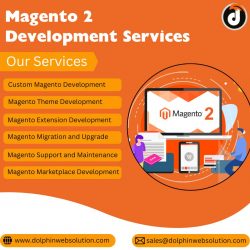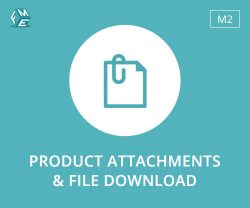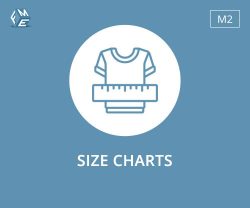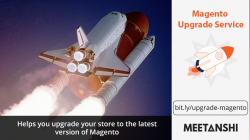Magento: Enabling eCommerce Brands Scale Greater Heights
When you kickstart your eCommerce research, you will come across 200,000+ Magento websites. Can you make it to this list?
You can win several eCommerce perks that other businesses use at their best. However, before you search for a reliable Magento development service provider, it is essential to discover its basics.
Magento is an Adobe-owned eCommerce website platform that offers hundreds of exceptional features to sell products and simultaneously connect with customers.
This open-source technology provides you the leverage to command the content, look and feel, and functionality of your eCommerce store. It allows you to build your eCommerce website without compromising your target audiences’ shopping experience
Besides, various Magento tools and features can help you with SEO, marketing, and appropriate catalog management.
Above all, this website is suitable for emerging and large-scale enterprises. So whether you are a local business or a global organization, Magento can expect a feature-rich Magento journey.
It brings undiscovered opportunities to your notice and evolves with your customers’ requirements.
What Are Magento Extensions?
A Magento extension is a piece of software you can implement for your eStore. For instance, Magento payment integration to your website ensures secure payment services for your customers.
Similarly, Magento offers thousands of extensions, including marketing, security, shipping and fulfillment, site optimization, finance, accounting, and customer services.
These extensions encourage you to meet business goals such as improved website speed, customer experience, reach, and conversions.
The Striking Difference Between Magento 1 And Magento 2
Magento 2 is an upgraded version of Magento 1, but it is essential to understand their significant differences.
Architecture
Magento 2 comprises several intuitive technologies that facilitate website customization and optimization. In addition, Magento developers have refurbished the entire Magento tech stack with the latest technologies.
This is one of the prominent reasons you need a Magento development company to migrate from Magento 1 to 2.
These are a few stellar technologies you are bound to find in Magento 2:
NGINX: This acts as a load balancer, HTTP cache, and reverse proxy
Composer: You get the leverage to use third-party libraries without the hassle of extension conflicts and complex source codes.
Symfony: Improved functionality, content control, and website look and feel
Redis: Use broker for messages and database cache
Varnish: Boosts website speed
Mobile Optimization
Website optimization is important, but simultaneously, mobile optimization is equally essential. One common complaint of Magento 1 users is that it needs better mobile optimization. The main reason being when Magento 1 was developed, mobile websites were insignificant.
However, today, mobile websites are essential; hence, Magento 2 developers have provided improved mobile optimization.
You can notice that Magento 2 is comparatively more mobile-friendly than Magento 1. Simultaneously, Magento 2 has more responsive themes and a quicker checkout process.
It supports Progressive Web Apps and develops mobile apps for refined customer experiences.
Website Performance
It took a lot of work to maintain and evaluate website performance with Magento 1. However, this is one of the key priorities in Magento 2.
They understood user requirements and introduced features and functionalities that helped improve website performance.
Simultaneously, the upgraded tech stack in Magento 2 promoted faster website loading and shorter server response time. Alongside, thousands of extensions improve website performance.
You will likely enjoy more customization provisions, website content, and design flexibility. This allows you to gain more command of what is visible to your audience on the website.
You can also learn how to add GA4 with magento 2, it will help you to optimize your website traffic and analysis decision-making.
Security
Magento 1 is not functional, as are its security updates or patches. Therefore, if you are still using Magento 1, your website is at risk, and you must switch to Magento 2.
This advanced Magento version offers robust security with regular updates and patches. In addition, a couple of extensions help improve security levels.
You are entitled to PCI compliance, and the platform won’t do this automatically. However, it is manageable if you have limited customizations.
Admin Panels
This is yet another area where Magento 2 is better than Magento 1. Magento 1’s admin panel was complex to use, and Magento 2 developers have simplified this panel.
Magento 2 offers an easy-to-navigate panel, but users have to go through a bit of understanding before they start using the new panel. Initially, the process can be overwhelming, but once you set up the process, it is convenient.
Magento 2 provides valuable statistics that can help you understand your business better. For example, you learn more about your customers, orders, and product demands.
This way, you acquire more customer data and personalize it to improve the customer experience.
Checkout Process
Magento 1 offers a six-step checkout process; however, Magento 2 provides a 2-click process. Simultaneously, customers enjoy a quick payment option with the advanced option. Magento 2 offers the most effortless checkout process.
Customer Support
You no longer get any updates or patches on Magento 1 as it is no longer supported on the platform. Magento 2 provides customer support with Magento Commerce and Magento Open Source.
Last Thoughts
Magento is a progressive and trending eCommerce technology for modern businesses. However, hiring an official Magento partner who can guide you to optimize this technology for your business is essential.
Ensure that you evaluate your Magento development service provider’s portfolio and aptitude before hiring them.
























































